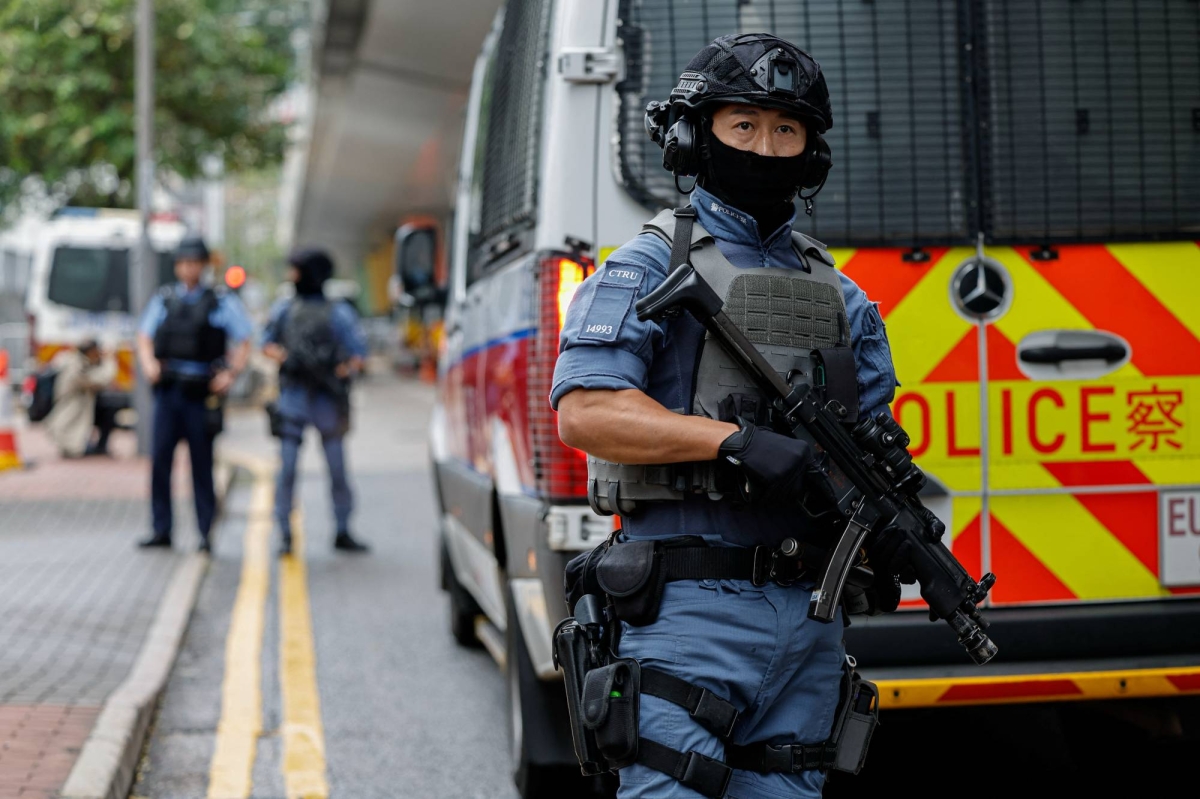Hong Kong’s High Court on Tuesday jailed 45 pro-democracy activists for up to 10 years following a landmark national security trial that has damaged the city’s once feisty democracy movement and drawn criticism from the U.S. and other countries.
A total of 47 pro-democracy activists were arrested and charged in 2021 with conspiracy to commit subversion under a Beijing-imposed national security law and had faced sentences of up to life in prison.
Benny Tai, a former legal scholar identified as an “organiser” of the activists, was sentenced to 10 years in jail, the longest sentence so far under the 2020 national security law.
Some Western governments have criticised the trial, with the U.S. describing it as “politically motivated” and saying the democrats should be released as they had been legally and peacefully participating in political activities.
The Chinese and Hong Kong governments say the national security laws were necessary to restore order after mass pro-democracy protests in 2019, and the democrats have been treated in accordance with local laws.
CLOSELY WATCHED TRIAL
The charges related to the organising of an unofficial “primary election” in 2020 to select the best candidates for an upcoming legislative election. The activists were accused by prosecutors of plotting to paralyse the government by engaging in potentially disruptive acts had they been elected.
After a 118 day trial, 14 of the democrats were found guilty in May, including Australian citizen Gordon Ng and activist Owen Chow, while two were acquitted. The other 31 pleaded guilty.
Australia’s Foreign Minister Penny Wong said she was “gravely concerned” about the sentence, and called on China to “cease suppression of freedoms of expression, assembly, media and civil society,” in Hong Kong.
Sentences ranged from just over four years to 10 years.
Prominent Hong Kong activist Joshua Wong was sentenced to four years and eight months in jail, while Chow was sentenced to seven years and nine months; former journalist-turned-activist Gwyneth Ho, was sentenced to seven years.
Hendrick Lui was sentenced to more than four years in jail. Afterwards, his mother Elsa Wu shouted: “He’s a good person … he’s not a political prisoner … why does he have to go to jail?”
It was not immediately clear whether the defendants – some of whom have already been detained for more than 3-1/2 years – would have this time deducted from their sentences.
Hundreds of people had queued from the early hours outside the court, many holding umbrellas in light rain as they tried to secure a seat within the main courtroom and several spillover courts.
Authorities deployed a tight police presence outside the West Kowloon Magistrates’ Court and for several blocks in the vicinity with police dogs, an armoured truck and vehicles with lights flashing. Some people were searched and questioned.
“I feel such an injustice needs witnessing,” said one woman who gave her name as Margaret and had been in the queue since Sunday afternoon. “I’ve long followed their case. They (the democrats) need to know they still have public support.”
The ruling, which critics have said tarnishes Hong Kong’s role as a global financial hub, comes as the city is hosting an international financial summit to attract more business.
U.S. President-elect Donald Trump’s nominee as secretary of state, Marco Rubio, has been a staunch critic of the trial and in an earlier open letter criticised the convictions as evidence of the national security law’s “comprehensive assault on Hong Kong’s autonomy, rule of law, and fundamental freedoms.”
Speaking outside the court building, Roxie Houge, the head of the U.S. consulate in Hong Kong’s political section, said the U.S. government condemned “the continuous prosecution of individuals here in Hong Kong who are expressing their political views … exercising their freedom of speech.”
Britain, which handed Hong Kong back to China in 1997, has said the security law has been used to curb dissent and freedom.
(Reuters)










